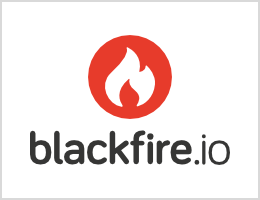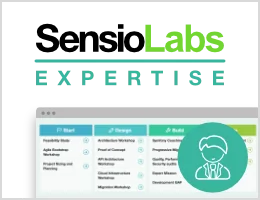Doctrine Events
Doctrine, the set of PHP libraries used by Symfony to work with databases, provides a lightweight event system to update entities during the application execution. These events, called lifecycle events, allow to perform tasks such as "update the createdAt property automatically right before persisting entities of this type".
Doctrine triggers events before/after performing the most common entity
operations (e.g. prePersist/postPersist, preUpdate/postUpdate) and also
on other common tasks (e.g. loadClassMetadata, onClear).
There are different ways to listen to these Doctrine events:
- Lifecycle callbacks, they are defined as public methods on the entity classes. They can't use services, so they are intended for very simple logic related to a single entity;
- Entity listeners, they are defined as classes with callback methods for the events you want to respond to. They can use services, but they are only called for the entities of a certain class, so they are ideal for complex event logic related to a single entity;
- Lifecycle listeners, they are similar to entity listeners but their event methods are called for all entities, not only those of a certain type. They are ideal to share event logic between entities.
The performance of each type of listener depends on how many entities applies to: lifecycle callbacks are faster than entity listeners, which in turn are faster than lifecycle listeners.
This article only explains the basics about Doctrine events when using them inside a Symfony application. Read the official docs about Doctrine events to learn everything about them.
See also
This article covers listeners for Doctrine ORM. If you are using ODM for MongoDB, read the DoctrineMongoDBBundle documentation.
Doctrine Lifecycle Callbacks
Lifecycle callbacks are defined as public methods inside the entity you want to modify.
For example, suppose you want to set a createdAt date column to the current
date, but only when the entity is first persisted (i.e. inserted). To do so,
define a callback for the prePersist Doctrine event:
1 2 3 4 5 6 7 8 9 10 11 12 13 14 15 16 17 18 19 20
// src/Entity/Product.php
namespace App\Entity;
use Doctrine\ORM\Mapping as ORM;
// When using attributes, don't forget to add #[ORM\HasLifecycleCallbacks]
// to the class of the entity where you define the callback
#[ORM\Entity]
#[ORM\HasLifecycleCallbacks]
class Product
{
// ...
#[ORM\PrePersist]
public function setCreatedAtValue(): void
{
$this->createdAt = new \DateTimeImmutable();
}
}1 2 3 4 5 6
# config/doctrine/Product.orm.yml
App\Entity\Product:
type: entity
# ...
lifecycleCallbacks:
prePersist: ['setCreatedAtValue']1 2 3 4 5 6 7 8 9 10 11 12 13 14
<!-- config/doctrine/Product.orm.xml -->
<?xml version="1.0" encoding="UTF-8" ?>
<doctrine-mapping xmlns="http://doctrine-project.org/schemas/orm/doctrine-mapping"
xmlns:xsi="http://www.w3.org/2001/XMLSchema-instance"
xsi:schemaLocation="http://doctrine-project.org/schemas/orm/doctrine-mapping
https://doctrine-project.org/schemas/orm/doctrine-mapping.xsd">
<entity name="App\Entity\Product">
<!-- ... -->
<lifecycle-callbacks>
<lifecycle-callback type="prePersist" method="setCreatedAtValue"/>
</lifecycle-callbacks>
</entity>
</doctrine-mapping>Note
Some lifecycle callbacks receive an argument that provides access to
useful information such as the current entity manager (e.g. the preUpdate
callback receives a PreUpdateEventArgs $event argument).
Doctrine Entity Listeners
Entity listeners are defined as PHP classes that listen to a single Doctrine
event on a single entity class. For example, suppose that you want to send some
notifications whenever a User entity is modified in the database.
First, define a PHP class that handles the postUpdate Doctrine event:
1 2 3 4 5 6 7 8 9 10 11 12 13 14 15
// src/EventListener/UserChangedNotifier.php
namespace App\EventListener;
use App\Entity\User;
use Doctrine\ORM\Event\PostUpdateEventArgs;
class UserChangedNotifier
{
// the entity listener methods receive two arguments:
// the entity instance and the lifecycle event
public function postUpdate(User $user, PostUpdateEventArgs $event): void
{
// ... do something to notify the changes
}
}Then, add the #[AsEntityListener] attribute to the class to enable it as
a Doctrine entity listener in your application:
1 2 3 4 5 6 7 8 9 10 11 12 13
// src/EventListener/UserChangedNotifier.php
namespace App\EventListener;
// ...
use App\Entity\User;
use Doctrine\Bundle\DoctrineBundle\Attribute\AsEntityListener;
use Doctrine\ORM\Events;
#[AsEntityListener(event: Events::postUpdate, method: 'postUpdate', entity: User::class)]
class UserChangedNotifier
{
// ...
}Alternatively, if you prefer to not use PHP attributes, you must
configure a service for the entity listener and tag it
with the doctrine.orm.entity_listener tag as follows:
1 2 3 4 5 6 7 8 9 10 11 12 13 14 15 16 17 18 19 20 21 22 23 24
# config/services.yaml
services:
# ...
App\EventListener\UserChangedNotifier:
tags:
-
# these are the options required to define the entity listener
name: 'doctrine.orm.entity_listener'
event: 'postUpdate'
entity: 'App\Entity\User'
# these are other options that you may define if needed
# set the 'lazy' option to TRUE to only instantiate listeners when they are used
# lazy: true
# set the 'entity_manager' option if the listener is not associated to the default manager
# entity_manager: 'custom'
# by default, Symfony looks for a method called after the event (e.g. postUpdate())
# if it doesn't exist, it tries to execute the '__invoke()' method, but you can
# configure a custom method name with the 'method' option
# method: 'checkUserChanges'1 2 3 4 5 6 7 8 9 10 11 12 13 14 15 16 17 18 19 20 21 22 23 24 25 26 27 28 29 30
<!-- config/services.xml -->
<?xml version="1.0" encoding="UTF-8" ?>
<container xmlns="http://symfony.com/schema/dic/services"
xmlns:doctrine="http://symfony.com/schema/dic/doctrine">
<services>
<!-- ... -->
<service id="App\EventListener\UserChangedNotifier">
<!--
* These are the options required to define the entity listener:
* * name
* * event
* * entity
*
* These are other options that you may define if needed:
* * lazy: if TRUE, listeners are only instantiated when they are used
* * entity_manager: define it if the listener is not associated to the default manager
* * method: by default, Symfony looks for a method called after the event (e.g. postUpdate())
* if it doesn't exist, it tries to execute the '__invoke()' method, but
* you can configure a custom method name with the 'method' option
-->
<tag name="doctrine.orm.entity_listener"
event="postUpdate"
entity="App\Entity\User"
lazy="true"
entity_manager="custom"
method="checkUserChanges"/>
</service>
</services>
</container>1 2 3 4 5 6 7 8 9 10 11 12 13 14 15 16 17 18 19 20 21 22 23 24 25 26 27 28 29 30
// config/services.php
namespace Symfony\Component\DependencyInjection\Loader\Configurator;
use App\Entity\User;
use App\EventListener\UserChangedNotifier;
return static function (ContainerConfigurator $container): void {
$services = $container->services();
$services->set(UserChangedNotifier::class)
->tag('doctrine.orm.entity_listener', [
// These are the options required to define the entity listener:
'event' => 'postUpdate',
'entity' => User::class,
// These are other options that you may define if needed:
// set the 'lazy' option to TRUE to only instantiate listeners when they are used
// 'lazy' => true,
// set the 'entity_manager' option if the listener is not associated to the default manager
// 'entity_manager' => 'custom',
// by default, Symfony looks for a method called after the event (e.g. postUpdate())
// if it doesn't exist, it tries to execute the '__invoke()' method, but you can
// configure a custom method name with the 'method' option
// 'method' => 'checkUserChanges',
])
;
};Doctrine Lifecycle Listeners
Lifecycle listeners are defined as PHP classes that listen to a single Doctrine
event on all the application entities. For example, suppose that you want to
update some search index whenever a new entity is persisted in the database. To
do so, define a listener for the postPersist Doctrine event:
1 2 3 4 5 6 7 8 9 10 11 12 13 14 15 16 17 18 19 20 21 22 23 24
// src/EventListener/SearchIndexer.php
namespace App\EventListener;
use App\Entity\Product;
use Doctrine\ORM\Event\PostPersistEventArgs;
class SearchIndexer
{
// the listener methods receive an argument which gives you access to
// both the entity object of the event and the entity manager itself
public function postPersist(PostPersistEventArgs $args): void
{
$entity = $args->getObject();
// if this listener only applies to certain entity types,
// add some code to check the entity type as early as possible
if (!$entity instanceof Product) {
return;
}
$entityManager = $args->getObjectManager();
// ... do something with the Product entity
}
}Note
In previous Doctrine versions, instead of PostPersistEventArgs, you had
to use LifecycleEventArgs, which was deprecated in Doctrine ORM 2.14.
Then, add the #[AsDoctrineListener] attribute to the class to enable it as
a Doctrine listener in your application:
1 2 3 4 5 6 7 8 9 10 11
// src/EventListener/SearchIndexer.php
namespace App\EventListener;
use Doctrine\Bundle\DoctrineBundle\Attribute\AsDoctrineListener;
use Doctrine\ORM\Events;
#[AsDoctrineListener(event: Events::postPersist, priority: 500, connection: 'default')]
class SearchIndexer
{
// ...
}Alternatively, if you prefer to not use PHP attributes, you must enable the
listener in the Symfony application by creating a new service for it and
tagging it with the doctrine.event_listener tag:
1 2 3 4 5 6 7 8 9 10 11 12 13 14
// src/EventListener/SearchIndexer.php
namespace App\EventListener;
use Doctrine\Bundle\DoctrineBundle\Attribute\AsDoctrineListener;
use Doctrine\ORM\Event\PostPersistEventArgs;
#[AsDoctrineListener('postPersist'/*, 500, 'default'*/)]
class SearchIndexer
{
public function postPersist(PostPersistEventArgs $event): void
{
// ...
}
}1 2 3 4 5 6 7 8 9 10 11 12 13 14 15 16 17
# config/services.yaml
services:
# ...
App\EventListener\SearchIndexer:
tags:
-
name: 'doctrine.event_listener'
# this is the only required option for the lifecycle listener tag
event: 'postPersist'
# listeners can define their priority in case listeners are associated
# to the same event (default priority = 0; higher numbers = listener is run earlier)
priority: 500
# you can also restrict listeners to a specific Doctrine connection
connection: 'default'1 2 3 4 5 6 7 8 9 10 11 12 13 14 15 16 17 18 19 20 21
<!-- config/services.xml -->
<?xml version="1.0" encoding="UTF-8" ?>
<container xmlns="http://symfony.com/schema/dic/services"
xmlns:doctrine="http://symfony.com/schema/dic/doctrine">
<services>
<!-- ... -->
<!--
* 'event' is the only required option that defines the lifecycle listener
* 'priority': used when multiple listeners are associated to the same event
* (default priority = 0; higher numbers = listener is run earlier)
* 'connection': restricts the listener to a specific Doctrine connection
-->
<service id="App\EventListener\SearchIndexer">
<tag name="doctrine.event_listener"
event="postPersist"
priority="500"
connection="default"/>
</service>
</services>
</container>1 2 3 4 5 6 7 8 9 10 11 12 13 14 15 16 17 18 19 20 21 22 23
// config/services.php
namespace Symfony\Component\DependencyInjection\Loader\Configurator;
use App\EventListener\SearchIndexer;
return static function (ContainerConfigurator $container): void {
$services = $container->services();
// listeners are applied by default to all Doctrine connections
$services->set(SearchIndexer::class)
->tag('doctrine.event_listener', [
// this is the only required option for the lifecycle listener tag
'event' => 'postPersist',
// listeners can define their priority in case multiple listeners are associated
// to the same event (default priority = 0; higher numbers = listener is run earlier)
'priority' => 500,
# you can also restrict listeners to a specific Doctrine connection
'connection' => 'default',
])
;
};2.8.0
The AsDoctrineListener attribute was introduced in DoctrineBundle 2.8.0.
Tip
The value of the connection option can also be a
configuration parameter.

